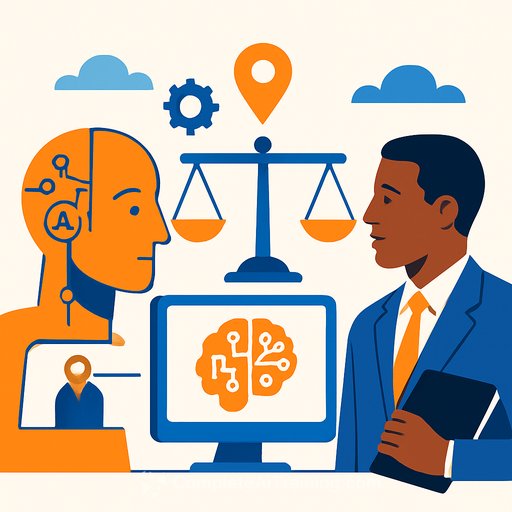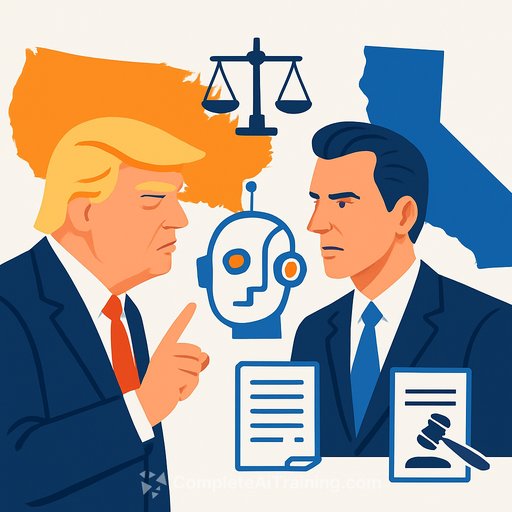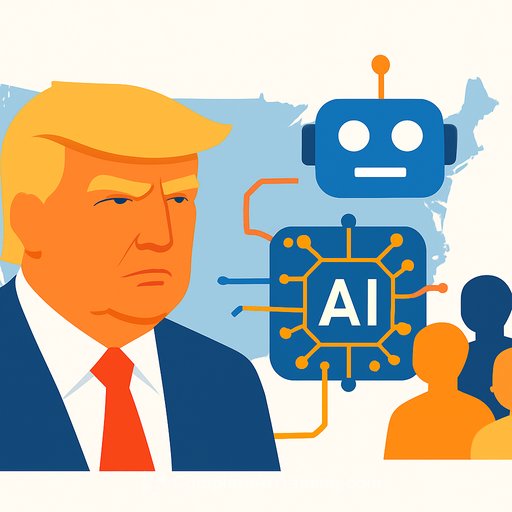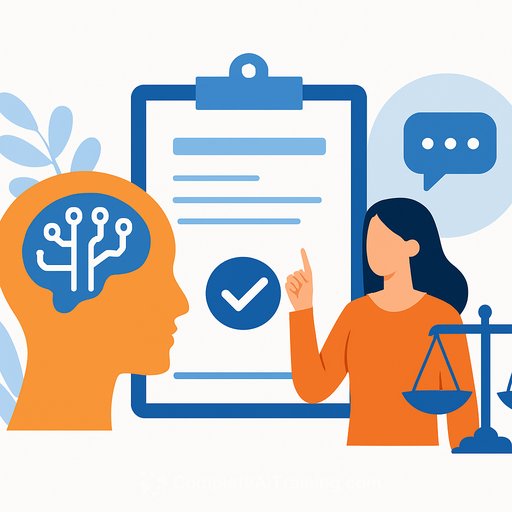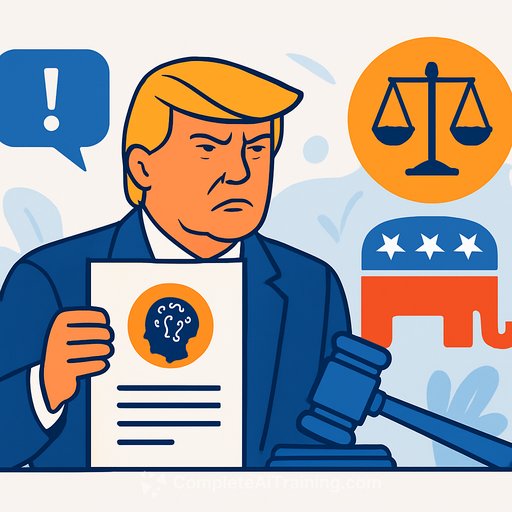Will AI Replace Legal Jobs in Indianapolis? Here’s What to Do in 2025
Indianapolis lawyers face a clear shift in 2025: AI will automate routine legal tasks like document review, drafting, and research—freeing up roughly 240 billable hours per lawyer annually. But legal jobs won’t disappear. Instead, work will pivot toward higher-value roles that require strategic thinking and human oversight.
Local firms—from Taft’s GenAI pilots to Krieg DeVault’s Westlaw and Microsoft AI integrations—are already adopting AI tools. Meanwhile, the Indiana Supreme Court has issued statewide AI policies demanding vendor safeguards and human verification, setting a framework to ensure ethical AI use and avoid sanctions such as $15,000 penalties.
Where Indianapolis Stands: Local AI Adoption and Job Market
Indianapolis ranks mid-pack nationally for AI readiness, supported by a strong talent pipeline from Purdue and Indiana University and nearly $15 billion in AI data center investments. Legal occupations have grown 34% since 2007, though wages are about 7% below the national average.
AI models excel at cognitive, non-routine tasks, which means legal work—long reliant on research and drafting—is more exposed than in previous automation waves. Firms must invest in AI literacy and governance to keep routine billable hours local instead of losing them to AI-augmented hubs.
- AI-readiness rank: 47th nationally
- AI data-center investment: ~$15 billion (2024)
- Legal occupation growth (2007–2022): 34%
- Workforce supply cushion: +14%
- Average wages: ~7% below U.S. average
Which Legal Tasks in Indianapolis Are Most Exposed to AI?
Generative AI threatens high-volume, routine tasks that consume 40–60% of lawyers' time. These include:
- Document review and summarization: AI scans thousands of pages quickly, reducing review hours.
- Legal research: AI synthesizes authorities and surfaces relevant precedent faster than manual searches.
- Drafting contracts, briefs, memos, correspondence: AI generates initial drafts and redlines, cutting drafting time significantly.
- Contract data extraction and due diligence: Automated clause extraction speeds negotiation and contract lifecycle management.
How AI Will Change Legal Roles and Billing in Indianapolis
AI will automate routine billable tasks, prompting firms to shift pricing models. Expect more fixed fees and alternative fee arrangements (AFAs) for commoditized work, while hourly billing remains for high-value strategy and advocacy.
Junior lawyers will spend fewer hours on rote tasks and must add strategic value or specialize in AI-augmented workflows to stay competitive.
Risks, Ethics, and Oversight for Indiana Lawyers Using AI
Unregulated AI use risks malpractice, reputational harm, and sanctions. Courts require disclosure and human verification of AI-generated content, as reflected in the notable New York sanction where AI hallucinated cases.
Indiana lawyers should comply with the Indiana Rules of Professional Conduct by:
- Competence (Rule 1.1): Training attorneys on AI limitations and verification.
- Communication (Rule 1.4): Disclosing material AI use in engagement letters or when it affects outcomes.
- Confidentiality (Rule 1.6): Restricting confidential inputs unless vendor safeguards prevent data reuse.
- Supervision (Rules 5.1/5.3): Treating AI outputs like nonlawyer assistants and implementing firm policies.
Opportunities for Indianapolis Lawyers and Firms
AI can free up roughly six workweeks per lawyer annually, enabling focus on strategy, client development, and complex advocacy. Firms that build internal AI capabilities and maintain secure, professional-grade AI use will capture this value instead of losing it to outside vendors.
Successful local pilots show a clear path: start with secure AI tools for research and contract abstraction, add transparent client disclosures, adopt fixed-fee pricing for commoditized work, and create new roles such as AI implementation managers.
- Time saved per lawyer: ~240 hours/year
- Edge through secure AI use: Avoid risks of casual “ChatGPT lawyer” reliance
- New service models: Transparent fixed-fee AI-enabled offerings
Practical Steps for Indianapolis Lawyers in 2025: Skills, Tools, and Governance
Start with secure pilots restricted to non-confidential tasks like drafting templates and summaries. Train every lawyer on prompt engineering and verification. Build a curated prompt library to ensure consistent, auditable AI use.
Institute vendor due diligence and contract clauses forbidding model training on client data. Create an internal “AI sandbox” for testing. Require mandatory human verification before filing AI-generated content, using checklists to confirm citations from Westlaw or LexisNexis.
Codify disclosure and supervision rules in engagement letters. Track error rates and time savings, then iterate governance based on monthly reviews.
What Law Schools and Training Programs in Indiana Should Do
Move beyond optional seminars to mandatory, hands-on AI literacy and ethics training. Programs should include:
- Short, stackable courses like Indiana University’s GenAI 101 (eight modules, 4–5 hours, with certificate)
- Mandatory ethics and malpractice-risk modules integrated into professional responsibility courses
- Secure AI clinics for practicing vendor due diligence and prompt verification on non-confidential data
How to Explain AI’s Value to Indianapolis Clients
Focus on concrete benefits: AI can reduce routine work like research and document review, delivering measurable ROI. Highlight local firm pilots and policies that align AI use with client goals.
Be transparent about governance: disclose material AI use or obtain consent when appropriate. Explain vendor due diligence, data handling, human verification, and billing to reassure clients that efficiency won’t come at the cost of transparency.
- Time reclaimed per lawyer: ~240 hours/year
- Organizations seeing ROI: 53%
- Professionals confident explaining AI’s value: 54%
Case Studies and Resources for Indianapolis Readers
- Taft & Krieg DeVault GenAI pilots: Models for secure, policy-driven AI rollouts with mandatory training
- Southern District of Indiana sanctions: Heavy fines and referrals for unverified AI citations demonstrate the stakes
- Indiana Trial Lawyers Association CLE: “Using AI in Your Law Practice” offers practical case studies and demos
Conclusion: Realistic Outlook for Legal Jobs in Indianapolis in 2025
AI will automate routine billable tasks but won’t replace legal jobs. The shift requires governance, training, and transparency to turn efficiency gains into client value and firm growth.
Indiana’s Supreme Court has set guardrails protecting sensitive data and requiring human oversight. Firms that pair secure pilots with upskilling and clear engagement terms will capture new value. Those that don’t risk sanctions and lost client trust.
Frequently Asked Questions
Will AI replace legal jobs in Indianapolis in 2025?
No. Routine billable tasks will be automated, shifting hours toward higher-value advocacy, client strategy, and specialized roles.
Which legal tasks in Indianapolis are most exposed to AI?
Document review, legal research, drafting, and contract data extraction/due diligence face the highest exposure.
What ethical and regulatory safeguards should Indiana lawyers follow when using AI?
Follow the Indiana Rules of Professional Conduct: ensure competence, communication, confidentiality, and supervision.
How will AI affect billing and junior lawyer roles in Indianapolis firms?
Expect a shift to fixed fees and alternative fee arrangements for routine work, with hourly rates preserved for high-value advocacy. Junior lawyers must add strategic value or specialize in AI workflows.
What practical steps can Indianapolis lawyers and law schools take in 2025 to prepare?
Run secure pilots limited to non-confidential tasks, build prompt libraries, train attorneys on prompt engineering and verification, and require human verification before filings.
Your membership also unlocks:

